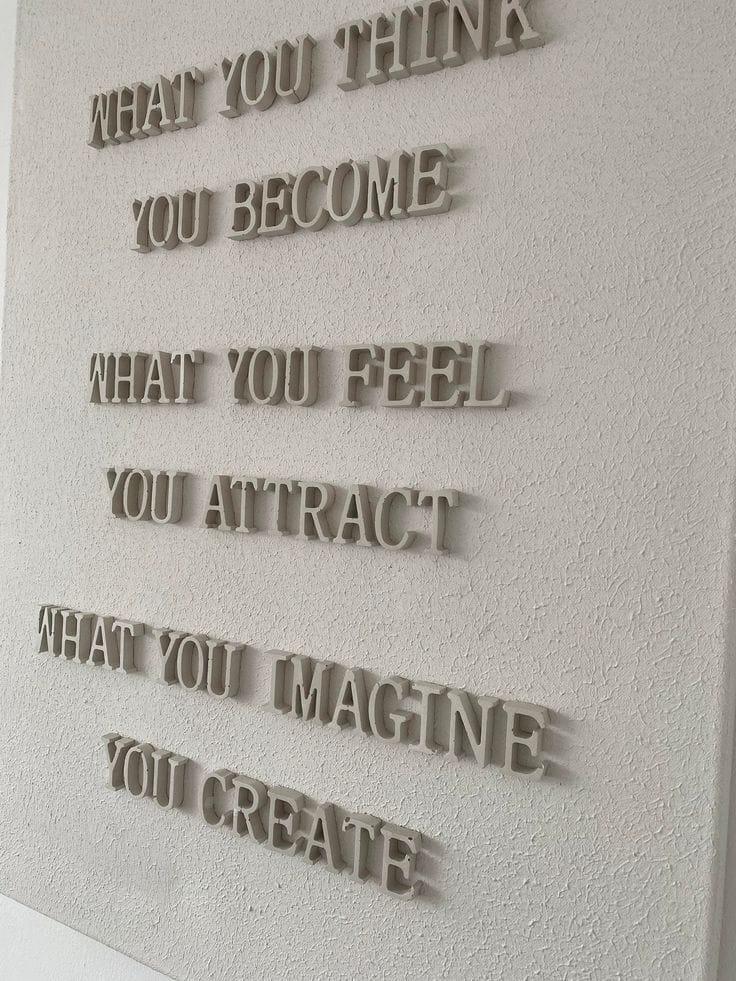What Does ‘People Pleasing’ Really Mean?

What Does ‘People Pleasing’ Really Mean?
2025 is the year we leave people-pleasing behind. No more shrinking ourselves to fit into others' expectations or sacrificing our needs to avoid discomfort. This year, we step boldly onto the other side of fear—the side where real growth happens.

Here is what the Pendulum looks like:
Collapse: The tendency to shrink both mentally and physically in order to satisfy or please other people.
Posturing: The tendency to exaggerate or inflate importance, status, or significance to impress or intimidate others.
While we can move between either side of the pendulum throughout the day, we may have behavioral patterns that cause us to lean more toward collapse or posturing, particularly in situations like social occasions, money, relationships, or dealing with customers and clients.
COLLAPSE
Collapse often shows up for new business owners around clients. They may feel desperate to get their business up and running and often do far more than necessary to build rapport with new clients. Collapse can also manifest in how someone handles conflict, whether in their personal relationships or at work. This tendency to shrink and fold stems from a deep-rooted desire to be liked—or, at times, simply to avoid being hurt.

This tendency to shrink and fold stems from a deep-rooted desire to be liked—or, at times, simply to avoid being hurt.
Sometimes, people living in collapse will go out of their way to volunteer time, donate money, or work for free. This concealed desire for appreciation and approval drives a person in collapse to seek situations where they can shrink so that others can grow.
Collapse seeks energy from other people, which can make it draining to be around someone living on this side of the pendulum. As is often the case with over-givers, they tend to burn out quickly, shy away from asking others for what they need, and eventually wind up draining the energy of the very people they are “helping.”

Collapse seeks energy from other people, they tend to burn out quickly, shy away from asking others for what they need, and eventually wind up draining the energy of the very people they are “helping.”
There’s a hidden shame living inside the person in collapse. This shame hides behind prioritizing the needs of others and feeling guilty for having strong desires of their own.
POSTURING
On the far-right end of the pendulum is posturing. In an almost desperate attempt to be seen as powerful or important, people who spend much of their time posturing secretly suffer from imposter syndrome. They often have fragile egos and avoid emotional involvement in their conversations, perceiving it as a weakness.

They often have fragile egos and avoid emotional involvement in their conversations, perceiving it as a weakness.
People who posture are more likely to feel imposter syndrome for a very good reason—they are imposters. Their artificial behavior, meant to signal importance and status, makes them feel fake because, in those moments, they are being fake.
Collapse and Posturing: Two Sides of the Same Coin
Collapse and posturing have more in common than you might think:
They’re both trying to get the other person to give something up, whether it’s respect, admiration, love, or money.
Their agendas are concealed and hidden from public view. They wear masks to cover their collapse or posturing behavior.
Both stem from feelings of deep inadequacy—the fear of never being enough.
They are incredibly stressful states to live in.
Both are rooted in insecurity.
Both are grounded in competition or the concept of a zero-sum game, believing they must take from others. They live in a competitive, rather than collaborative, frame of mind.

Both are grounded in competition or the concept of a zero-sum game, believing they must take from others. They live in a competitive, rather than collaborative, frame of mind.
Composure
“Stress is who you think you should be. Relaxation is who you are.”
Composure is neither begging nor freaking out. It’s about sitting comfortably and calmly enjoying the moment or event taking place.
The agenda and desires of a composed person aren’t hidden or concealed. Think of composure as a mature presence.

“Stress is who you think you should be. Relaxation is who you are.”
What Makes Composed People So Magnetic?
They are beautifully human.
They embrace the moment.
They respect others.
There is never a worry that they don’t mean what they say.
There is never a concern that they mean to offend—because they never do.
They do what needs to be done without a fuss.

What Makes Composed People So Magnetic?
Anxiety - The Root of ALL Evil.
Anxiety (in my opinion) comes from 3 things:
A decline in the reputation you have with yourself
An inability to recognize what you can and can’t control
Unmet expectations, or the fear of them being unmet
Enjoyment stems from our expectations being open, and still positive.
Control Over Others:
Whatever degree of control you’d like to have over others, you’ll need 3x that level of control over yourself.
Composure may appear as a lack of stress. Under stress, there’s a tendency for our minds to focus only on what we don’t want to happen. In order for you to change this pattern, you have to change how you think.
When we force the body to sit still and mentally rehearse successful meetings, interactions, and social events, we are training the whole brain, but more specifically: the RAS (reticular activating system).
Stay tuned for the next newsletter where we break down how to combat stress and take control of our lives…

Stay tuned for the next newsletter where we break down how to combat stress and take control of our lives…